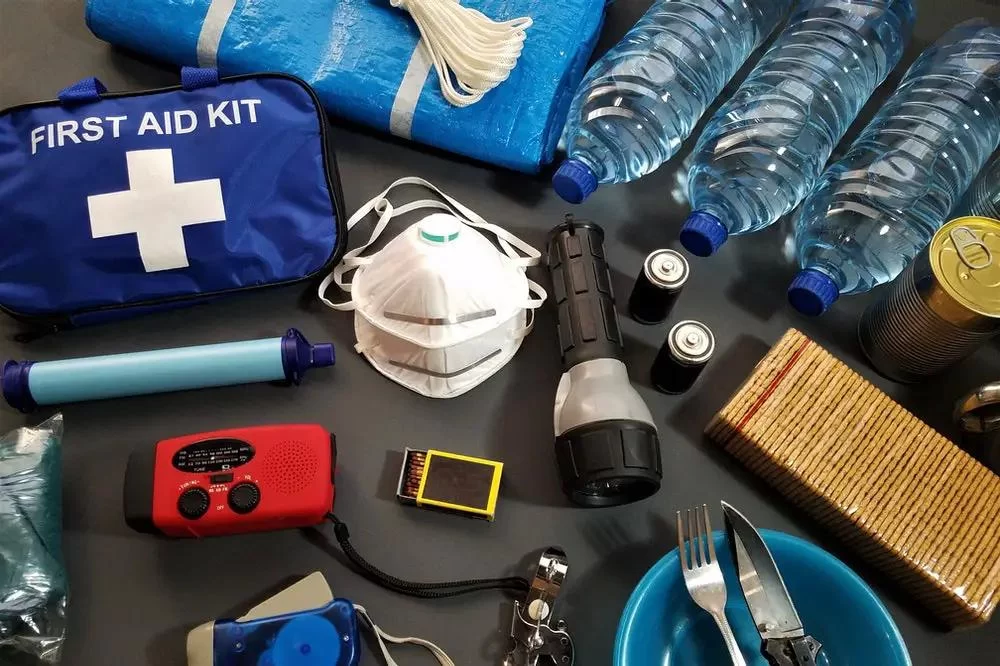Learn essential tips for handling injuries during camping trips. From first aid advice to outdoor injury prevention, stay safe with these expert recommendations for managing injuries in the wild.

Tips for Handling Injuries During Camping Trips: Stay Safe and Prepared
- Understanding Common Camping Injuries
- Preparing Your First Aid Kit for Camping
- Basic First Aid Techniques Every Camper Should Know
- How to Deal with Camping Emergencies
- Real-Life Experiences: How Injuries Were Handled in the Outdoors
- Plan Your Safe Camping Trip with Pine Cliff Resort
Understanding Common Camping Injuries
While camping is an exciting and adventurous way to connect with nature, it's also important to acknowledge the risks involved. From small cuts to more serious injuries, being prepared is crucial. Here are some common injuries campers may encounter:
- Sprains and Strains: Hiking on uneven terrain or carrying heavy gear can lead to sprained ankles or strained muscles.
- Cuts and Scrapes: Handling sharp tools like knives or chopping wood can result in minor cuts or deeper gashes.
- Burns: Whether from a campfire or cooking equipment, burns are a common injury during camping trips.
- Insect Bites and Stings: Mosquitoes, bees, and other insects can cause painful bites and stings that may lead to allergic reactions.
- Heat Exhaustion: Prolonged exposure to the sun without proper hydration or protection can cause heat exhaustion, especially during summer months.
Understanding these injuries and being prepared for them can help you stay calm and react appropriately when accidents happen.
Preparing Your First Aid Kit for Camping
A well-stocked first aid kit is one of the most essential tools when heading out into the wilderness. Here’s what you should include in your camping first aid kit:
- Bandages: Various sizes of adhesive bandages, gauze pads, and medical tape for cuts and abrasions.
- Antiseptic Wipes and Cream: To disinfect cuts, scrapes, or wounds to prevent infection.
- Pain Relief: Over-the-counter pain relievers like ibuprofen or aspirin for pain management.
- Elastic Bandage: A bandage to wrap around sprains or strains for added support.
- Burn Cream: For treating minor burns from campfires or cooking.
- Insect Repellent and Sting Relief: Insect bites and stings can happen quickly, so having a good repellent and relief cream is important.
- Allergy Medication: Antihistamines or an epinephrine auto-injector in case of allergic reactions to bee stings or other allergens.
- Thermometer and Tweezers: For checking body temperature and removing splinters or ticks.
Ensure your kit is easily accessible and that you know how to use the items inside. Regularly check its contents and replenish supplies as needed.
Basic First Aid Techniques Every Camper Should Know
Knowing some basic first aid techniques is vital when you’re camping, especially if you're in a remote area. Here are a few techniques you should be familiar with:
- CPR: Learning how to perform CPR can save a life in the event of a cardiac emergency or if someone stops breathing.
- How to Treat a Sprain: Apply the R.I.C.E method (Rest, Ice, Compression, Elevation) to treat sprains.
- How to Stop Bleeding: Apply direct pressure to a wound to stop bleeding, and elevate the injured area if possible. If bleeding doesn’t stop, seek medical help immediately.
- Dealing with Insect Stings: Remove the stinger immediately, clean the area, and apply a cold compress. If allergic reactions occur, seek medical attention immediately.
Being equipped with this knowledge not only helps you handle injuries confidently but also ensures the safety of everyone around you.
How to Deal with Camping Emergencies
Accidents can happen when least expected, so knowing how to handle a camping emergency is crucial. Here are some steps you can take when an injury or emergency occurs:
- Stay Calm: The most important thing during any emergency is to stay calm. Panic can make the situation worse.
- Assess the Situation: Determine the severity of the injury. If it’s something minor like a small cut, you can treat it yourself. If it’s more serious, you may need to seek professional medical help.
- Seek Help if Needed: If the injury requires professional care, use your phone to call for help, or send someone to get help if you're in a remote area.
- Use Emergency Numbers: If you're near a park or established campsite, make sure you know the emergency contact numbers, such as park rangers or nearby hospitals.
Having a clear plan of action in place can help you deal with an emergency more efficiently and with less stress.
Real-Life Experiences: How Injuries Were Handled in the Outdoors
On one of our recent camping trips to the Grand Canyon, we encountered a sprained ankle when a fellow camper twisted his foot while hiking. Fortunately, we had a well-stocked first aid kit and knew how to apply the R.I.C.E method. After a few hours of rest, ice, and elevation, he was able to walk again with minimal discomfort. We also had phone service to call for help if needed, but it wasn’t necessary thanks to our preparation.
It’s moments like these that remind us how important it is to be prepared and know how to respond when accidents happen in the great outdoors.
Plan Your Safe Camping Trip with Pine Cliff Resort
At Pine Cliff Resort, we prioritize safety so you can enjoy your adventure worry-free. From preparing your first aid kit to providing you with expert safety advice, we help ensure that your camping experience is both fun and safe. Whether you’re hiking, fishing, or just relaxing by the campfire, our team is here to guide you on how to handle any injuries that may come your way.
Ready to embark on a safe camping trip? Click here to book your next adventure with Pine Cliff Resort!
Alpine Shores Campground
Alpine Shores, Elkins, WV 26241, USA
Visit Location PageOwens Creek Campground
15882 Foxville Deerfield Rd, Sabillasville, MD 21780, USA
Visit Location Page